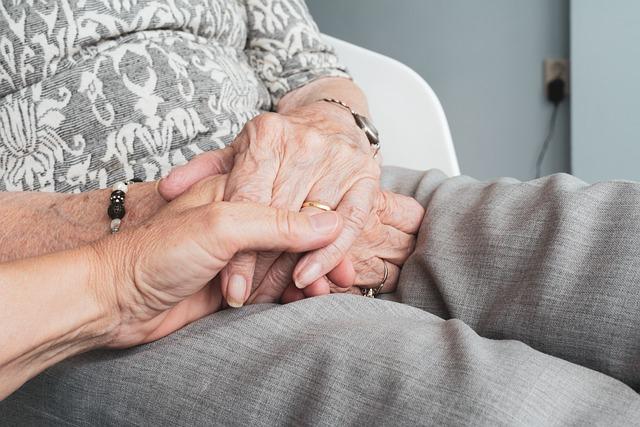In a world that often celebrates the vibrancy of youth, the seasoned wisdom and rich experiences of our senior citizens can sometimes be overshadowed. Yet, like the golden hues of a sunset, the later stages of life bring their own unique beauty and value. Age should be a badge of honor, not a barrier. However, age discrimination remains a harsh reality for many, subtly eroding the rights and dignity of those who have spent decades contributing to society. This article is a beacon of hope and guidance, offering insights into safeguarding the rights of our elders against the silent tide of ageism. Join us as we explore empowering strategies and legal protections designed to honor and uphold the dignity of our senior community, ensuring they continue to thrive with respect and equality in every facet of life.
Understanding Ageism: Recognizing the Subtle Signs of Discrimination
Ageism can manifest in various ways, often slipping into daily interactions and societal norms so seamlessly that it goes unnoticed. Recognizing these subtle signs is the first step towards safeguarding the rights of seniors. Discrimination might appear as jokes or dismissive comments that trivialize the abilities of older individuals. It can also emerge in more institutional forms, such as biased hiring practices or limited access to opportunities for advancement. To counteract this, it’s crucial to foster an environment where everyone, regardless of age, is treated with dignity and respect.
- Language Matters: Be mindful of the words used when discussing age. Phrases that belittle or patronize older adults contribute to ageist attitudes.
- Challenge Stereotypes: Actively question assumptions that older people are less capable or tech-savvy. Celebrate their contributions and experiences.
- Advocate for Inclusion: Encourage policies that support age diversity in the workplace and community, ensuring equal opportunities for all.
- Promote Awareness: Share stories and experiences that highlight the value of older adults, helping to shift perceptions and attitudes.
By being vigilant and proactive, we can create a society where age discrimination is not only recognized but actively challenged, ensuring that senior rights are upheld and respected.

Empowering Seniors: Tools and Resources to Uphold Their Rights
Age discrimination can subtly permeate various aspects of life, often going unnoticed until its impact becomes tangible. To safeguard the rights of seniors, it is crucial to equip them with the right tools and resources. Here are some empowering strategies to consider:
- Know Your Rights: Understanding the laws that protect against age discrimination is the first step. Familiarize yourself with acts like the Age Discrimination in Employment Act (ADEA) and resources from organizations like AARP, which offer valuable insights and support.
- Leverage Technology: Use technology to stay informed and connected. Online platforms and apps can offer easy access to legal advice, community forums, and educational resources tailored for seniors.
- Advocate and Connect: Join senior advocacy groups that champion against ageism. These communities not only provide a platform to voice concerns but also foster connections with like-minded individuals.
- Seek Legal Assistance: In cases where discrimination is apparent, consulting with an attorney who specializes in elder law can be vital. Many offer free consultations to discuss potential legal actions.
By arming themselves with knowledge and utilizing available resources, seniors can confidently assert their rights and combat age discrimination effectively.

Building a Supportive Network: Fostering Community and Advocacy
In a world where age should be celebrated, it is disheartening to encounter discrimination based on the number of years one has lived. To combat this, building a supportive network is crucial. By fostering a community that actively advocates for the rights of seniors, we can ensure their voices are heard and respected. Start by connecting with local organizations dedicated to senior advocacy. These groups often host workshops, seminars, and support groups where you can learn about your rights and share experiences with others who have faced similar challenges. Engaging in these communities not only provides valuable information but also empowers seniors to stand up against ageism.
Additionally, consider forming alliances with younger generations. Bridging the gap between age groups fosters mutual understanding and respect, creating a unified front against discrimination. Encourage intergenerational dialogues that highlight the invaluable contributions seniors make to society. Share stories, listen actively, and work together to promote policies that protect senior rights. When communities unite, they create a powerful force that can influence change at both local and national levels. Remember, a strong, empathetic network is a beacon of hope and a catalyst for real, lasting change.
Legal Avenues and Beyond: Practical Steps to Combat Age Discrimination
When it comes to tackling age discrimination, understanding your rights is the first step. Federal laws, such as the Age Discrimination in Employment Act (ADEA), offer robust protection against unfair treatment in the workplace for those aged 40 and above. It’s crucial to document any incidents meticulously and seek guidance from a legal expert who specializes in age discrimination cases. Local Equal Employment Opportunity Commission (EEOC) offices can be a valuable resource, providing guidance and support through the complaint process.
Beyond legal measures, there are practical steps to empower yourself and others. Consider joining or forming support groups where shared experiences can foster a sense of community and resilience. Advocacy is another powerful tool—raising awareness about age discrimination can spark change in workplace policies and cultural attitudes. don’t underestimate the power of continuous learning and skill development to stay competitive and relevant in your field. This proactive approach not only enhances your career prospects but also challenges ageist stereotypes by demonstrating adaptability and competence.


